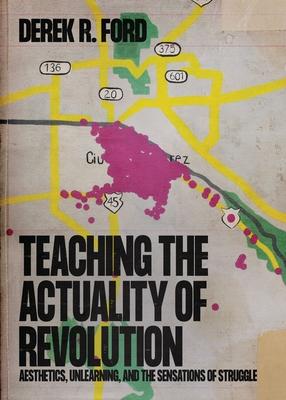Exploring the nexus between aesthetics, pedagogy, and politics illustrates the central role education plays in reproducing injustice and inhibiting confidence in revolutionary struggle. Demonstrating how capitalism and its attendant forms of oppression are not merely cognitive but perceptual, Derek R. Ford proposes that revolutionary education demands the production of aesthetic experiences through which we sense the possibility and actuality of alternative worlds. In response to this pressing task, Ford develops a praxis of teaching and a pedagogy of unlearning that, in our current conjuncture, creates conditions for encountering what Jennifer Ponce de Len calls "an other aesthetics." Mapping contemporary capital as a perceptual ecology of structures, social relations, beliefs, and feelings, Teaching the Actuality of Revolution provides an extensive new set of concepts, practices, and readings for revolutionaries to better plan, enact, reflect on, and refine our organizing efforts.
"Ford expertly wields a robust analysis of sensory perception and perceptual mapping against the dominant aesthetic ecological regime which reigns as an extension of the dictatorship of capital and which is reproduced, according to Ford, pedagogically. What emerges from this exploration is essential reading for educators, organizers, and anyone interested in (un)learning the ideology and imposed sensorium of capital and, ultimately, in teaching the actuality of revolution!" -Breht O'Shea, Revolutionary Left Radio
